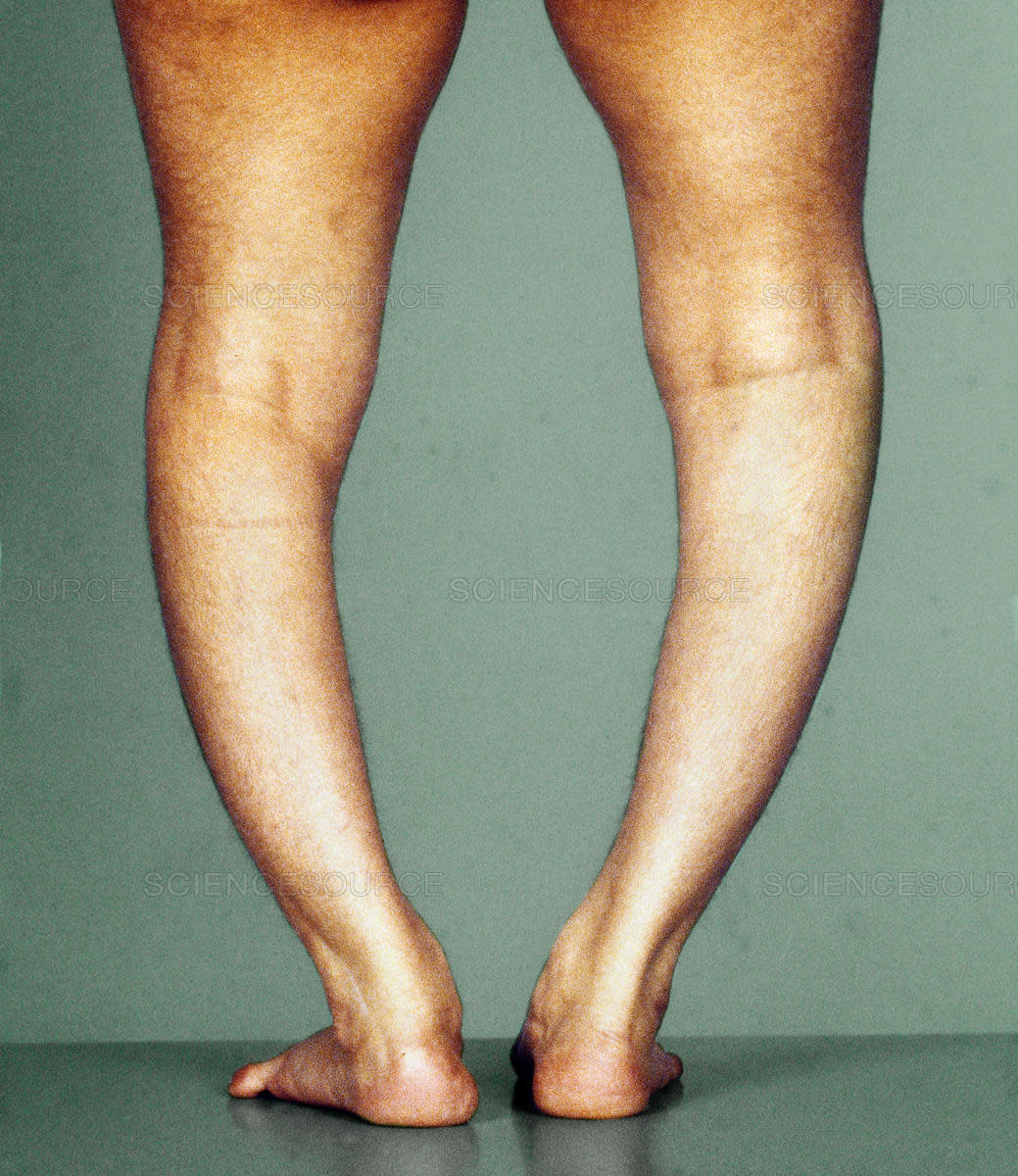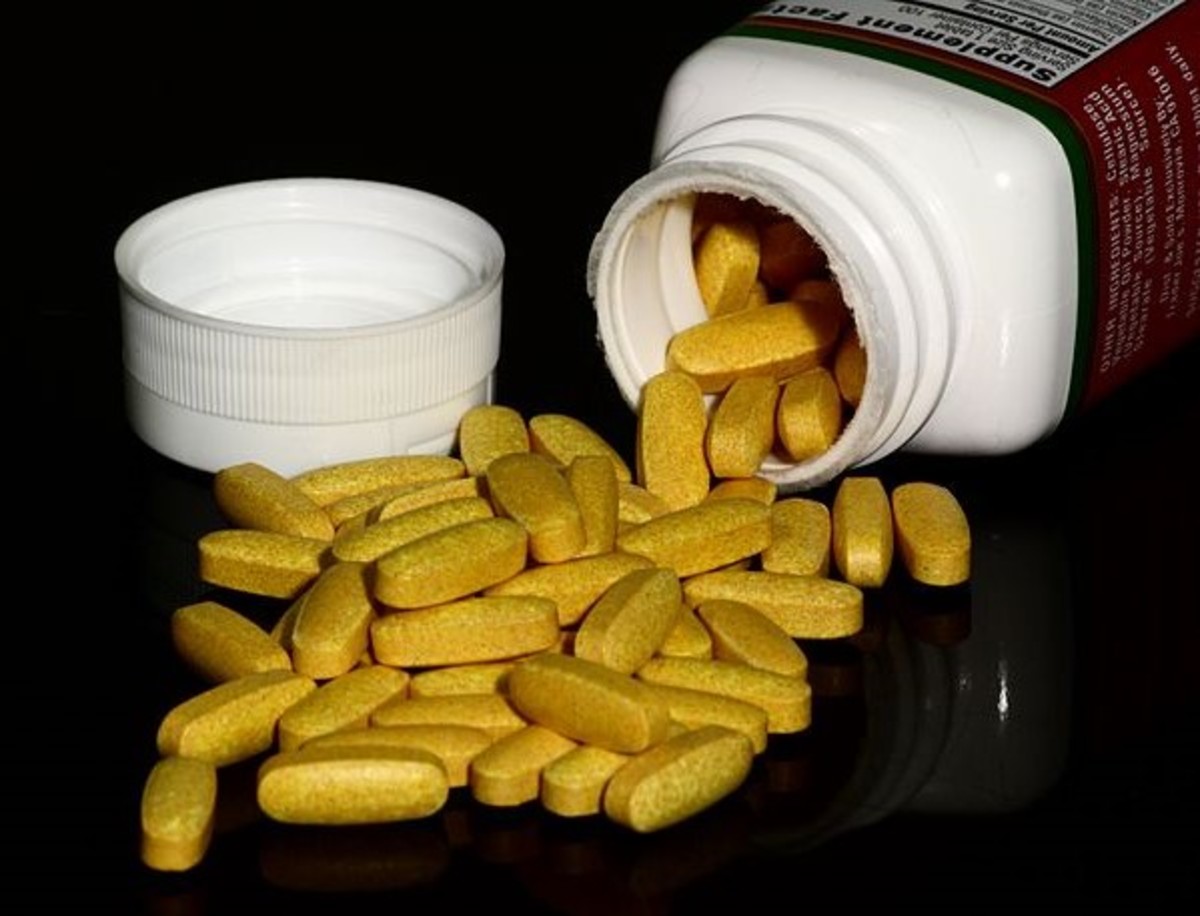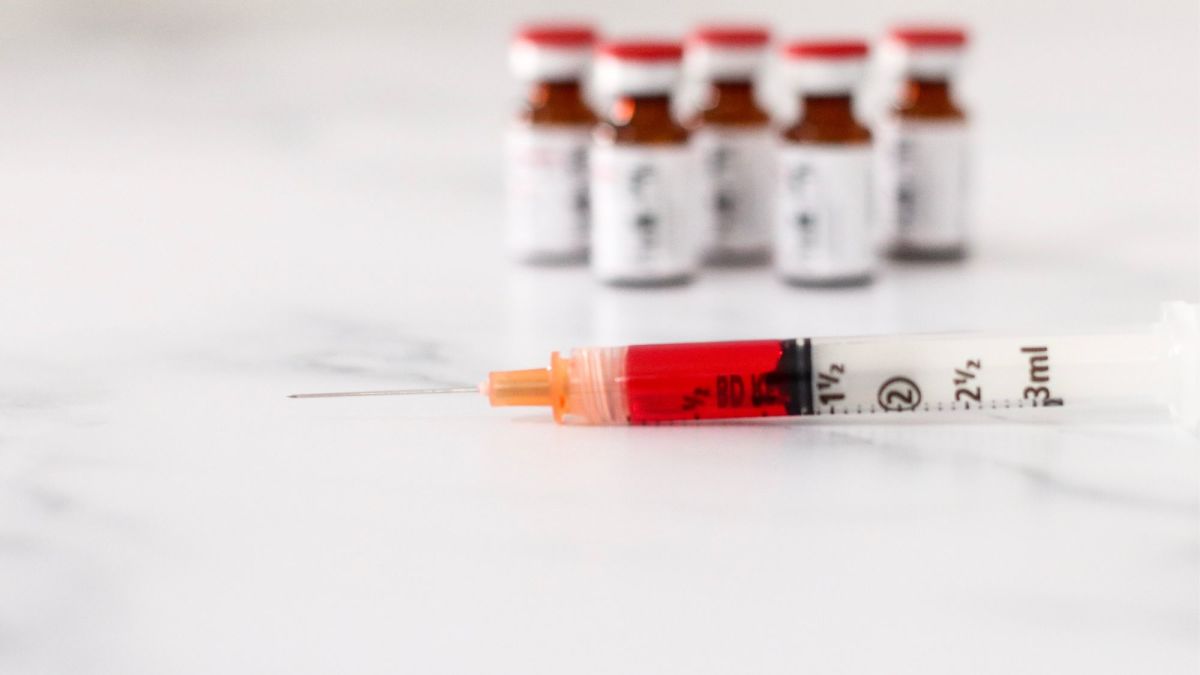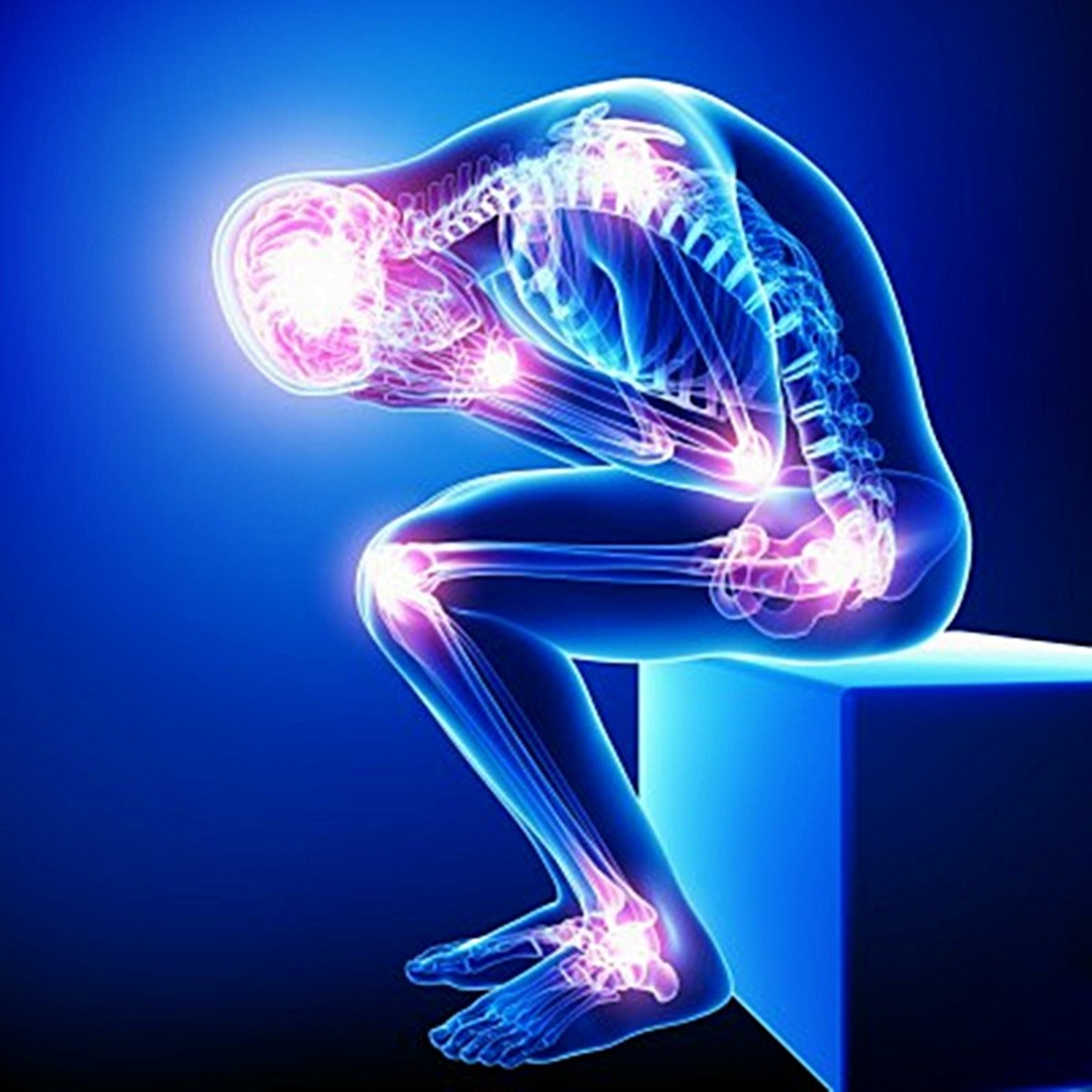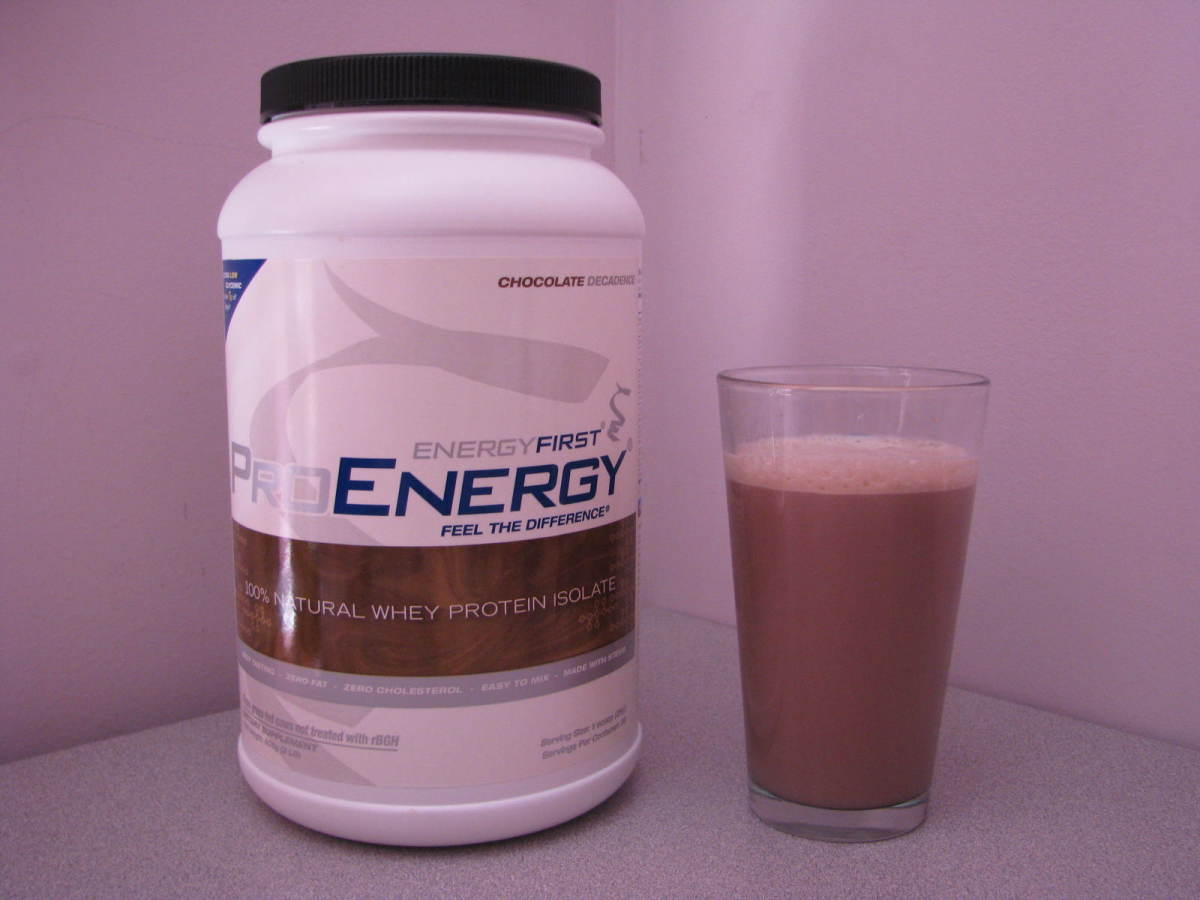How Do Vitamins Provide Energy If It Can Only Help the Body Develop and Grow?
Everybody knows how it feels like to be exhausted - that feeling of not being able to move any longer because of complete exhaustion; when energy is all drained out. What's not familiar to everyone however, is the feeling of being simply tired. It's hard to differentiate the two.
Being simply tired does not involve the usual body ache or the inability to lift a finger because the body is tired all over. Simply tired means not having the energy to see a friend, or do something that usually brings joy to a person. It is all about losing all the excitement in the things an individual used to love doing.
What's good to know about this however, is that such feelings are not an indication of depression. It could be a sign of a deficiency in one or more kinds of vitamins that the body needs.
Do Vitamins Provide Energy?
Many people ask the same question. How can vitamins help the body to increase its energy levels? How can they eliminate tiredness? It's been only known to help the body grow and develop.
Surprisingly, vitamins do provide energy for the body. Not all of them though. Only the B-Vitamin group has been known to provide energy support for the human body, especially B12.
B Vitamins for Energy
How do vitamins provide energy? This can be seen in the way B vitamins help in two major bodily functions. It helps in the formation of red blood cells. It also plays an important role in the conversion of food into energy. According to Dr. Andrew Shao, Senior VP for the Scientific and Regulatory Affairs division of the Council for Responsible Nutrition, the B vitamins group provides support for how the body processes energy.
In addition, it helps in the body's production of cellular energy. Clearly, B vitamins provide energy for the body.
The B Vitamins Group
The B vitamins family includes 8 unique vitamins with different functions in the body: thiamin (B1), niacin (B3), riboflavin (B2), panthothenic acid (B5), pyridoxine (B6), biotin (B7), folic acid (B9), and cyanocobalamin or simply cobalamin (B12). Although many of these vitamins need each other to work, each has its own specific benefits - from preventing migraines or memory loss to promoting healthy hair and skin.

Do Vitamins Provide Energy? Find Out Below.
First is Thiamin. Also known as vitamin B1, thiamin helps the body to convert blood sugar (glucose) into energy. Food with thiamin include pork, yeast, nuts, wheat germ, legumes, sesame seeds (and other seeds), and whole meal cereal grains. In some countries, it is required by law to fortify flour for making bread with thiamin.
Second is Riboflavin. Also known as vitamin B2, riboflavin is known for helping the body produce energy. It also promotes healthy skin and vision. Food with riboflavin includes kidney and liver, yeast, meat, egg white, leafy green vegetables, yoghurt, milk, wholegrain cereals and breads, and cottage cheese.
Third is Niacin. Also known as vitamin B3, niacin helps the body in converting fat and carbohydrates into energy. It also keeps the skin, digestive system, and nervous system healthy. Food high in niacin include mushrooms, nuts, wholegrain cereals and breads, eggs, milk, poultry, fish, meat, and all food containing protein. Compared to other B vitamins, niacin can tolerate high heat which enables it to be retained in food even after cooking.
Fourth is Pantothenic acid. Also called vitamin B5, pantothenic acid is essential in metabolizing fats, proteins, and carbohydrates, in the body. It also promotes red blood cell production and steroid hormones. Food containing pantothenic acid include legumes, peanuts, yeast, eggs, kidneys, milk, meat, and liver.
Fifth is Pyridoxine. Also called vitamin B6, pyridoxine is like all the other B vitamins; it helps the body in metabolizing carbohydrates and protein as energy. However, it specializes in influencing the development and process of the brain. It also influences steroid hormone activity and immune function. Vitamin B6 can be found in fruits, liver, nuts, poultry, meat, legumes, green leafy vegetables, shellfish, fish, and cereal grains.
Sixth is Biotin. Also called vitamin B7, biotin is helps the body to metabolize fat, amino acid, and glycogen as energy. It can be found in mushrooms, chicken, yeast, egg yolks, cauliflower, and peanuts.
Seventh is Folic acid. Also called folate or vitamin B9, it is essential in red blood cell formation. Aside from this, it is a popular vitamin for pregnant women because it aids in fetal development. Folic acid is simply the synthetic form of folate which is added in supplements and food. Folate is found in citrus fruits, cereals, eggs, poultry, liver, legumes, seeds, and green leafy vegetables.
Lastly, there is vitamin B12. It keeps the mind and cells healthy. It also promotes formation of new red blood cells. It also breaks down amino acids and fatty acids to provide energy for the body. However, for it to work properly, it must be taken with folate because the two are interdependent of each other. Vitamin B12 is found in eggs, cheese, milk, liver, and all kinds of meat.
The eight B vitamins, also referred to as vitamin B complex, are essential to the body. This means that the human body needs B vitamins in order to function well. However, it must be taken from an outside source except for biotin or vitamin B7. It is considered a non-essential nutrient, which indicates that the body is ableto produce it.
Clearly, vitamins provide energy creating new red blood cells and using food as fuel source. As essential nutrients, vitamin B complex keeps the body stay energized. With all these benefits and hype, do vitamins provide energy for real?
The Truth behindVitamin B Complex and the Energy It Provides
People believe that B vitamins improve energy, memory, concentration, and mood. However, according to Dr. Susan Shurin, Deputy Director from the National Heart, Lung, and Blood Institute, says that there is still no clinical evidence that suggests vitamin B can increase energy in people who are sufficiently provided with the vitamin in their body.
In another occasion, Dr. Kathi Kemper, Center for Integrative Health and Wellness Director at the Ohio State University, declares that the body's internal energy factories rely on B vitamins to work well. However, the body may not need it if there is enough amount in the body itself already.
This leaves this question unanswered, "How do vitamins provide energy?"
There Has to Be a Deficiency
Vitamin B complex has been hailed as an energy-boosting vitamin. While this is true, there is something else that people should know. Vitamin B complex can only work properly if an individual taking it is experiencing a form of B vitamin deficiency. Dr. Shurin further states that the benefits of B vitamins can only be true for people who are deficient in it.
Author Tanya Zuckerbrot, founder of the F-Factor diet and also the only recognized dietitian to the Miss Universe organization and its contestants, warns people of taking B vitamins. The registered dietitian says that the body may already be getting its daily dose of B vitamins from the food that most people eat today.
Dr. Kemper on the other hand, reiterates that B vitamins cannot provide the same pick-me up effect that caffeine has. In a sense, knowing how do vitamins provide energy is about learning the effects of not having enough B vitamins in the body.
To know if the body is experiencing vitamin B deficiency, here is a look at its symptoms.
Symptoms of Vitamin B Complex Deficiencies
In general, an individual experiencing vitamin B deficiency can notice symptoms such as tiredness, weakness, and digestive problems. Dr. Samantha Heller, Senior Clinical Nutritionist from the Langone Medical Center of New York University, adds that people suffering from vitamin B deficiency find it hard to concentrate on even the simplest tasks. As a result, they become impatient and their frustration level rises.
In a separate statement, Dr. Kate Geagan, known as the “American Green Nutritionist” and a Medical Advisory Board Member of the Dr. Oz Show, stated that 15-40% of Americans have insufficient levels of vitamin B to gain good health. They are at risk of diseases affecting the cardiovascular, digestive, and nervous systems.
The concerns aired by Drs. Heller and Geagan are real. Even short-term vitamin B deficiency can cause severe mood changes, fatigue, and dementia-like symptoms. For young people, this is especially something to be worried about. Nobody wants to experience dementia at an early age (at any age, in fact).
If left untreated, severe lack of vitamin B in the body can lead to nerve damage and heart diseases. For this reason, it's important to identify a deficiency early on.

Deficiencies of the B Vitamins Group
Do vitamins provide energy to a person experiencing deficiency in B vitamins?More effectively, yes. Compared to a person not suffering from any deficiency of this vitamin, sufferers benefit more in B vitamins. Here is a detailed look at the deficiencies of the vitamin B complex.
Vitamin B1 Deficiency. The lack of Thiamin in the body leads to Beriberi disease (wet and dry) or Wernicke-Korsakoff syndrome (wet brain).
Thiamin enables the body's nerves to function well. The lack of thiamin in the body causes nerve degeneration and later damages the nervous system. Symptoms include poor coordination of the arms and legs, skin tingling sensation all over the body, and numbing pain in the leg muscles.
Wet beriberi on the other hand, affects the cardio vascular system. It causes severe edema or swelling of the heart, an enlarged heart, and heart failure.
Wet brain, or Wernicke-Korsakoff syndrome, meanwhile, is caused by lack of thiamin in the body because of excessive alcohol intake. Alcohol limits the body's ability to absorb thiamin and instead, excretes it through the kidneys. Wet brain causes mental confusion, unsteady movements, paralysis of eye muscles, and involuntary eyeball movement.
In general, symptoms of thiamin deficiency include muscle weakness, lethargy, fatigue, irritability, and confusion.
Vitamin B2 Deficiency. Ariboflavinosisis a rare disease caused by a deficiency of Riboflavin in the body. Its symptoms include skin rashes, reddening of the cornea, hair loss, sensitivity to light, anxiety, inflamed eyelids, cracks on the corner of the mouth and on the tongue, and inflamed tongue.
Vitamin B3 Deficiency. The lack of niacin in the body leads to Pellagra. It is a disease characterized by symptoms including dermatitis, diarrhea, and dementia. These three are usually collectively known as the "Three Ds" by the medical community to describe the symptoms of pellagra sufferers.
The lack of niacin in the body is caused by two major reasons. First and unfortunately, it usually occurs in people who eat corn as a major part of their diet. An individual living on corn on a daily basis is at a higher risk.
Another cause of pellagra is the body's inability to absorb the vitamin because of digestive problems. If left untreated, the severity of symptoms can lead to death. Other symptoms of pellagra include dizziness, weakness, mental confusion, loss of appetite, irritability, and a swollen tongue.
Vitamin B5 Deficiency. Deficiency in pantothenic acid is extremely rare. It is caused by severe malnutrition. It is also caused by the body's inability to absorb vitamins and minerals brought about by intestinal problems or intake of certain medications.
People suffering from a deficiency of this vitamin may experience intestinal problems, vomiting, constipation, loss of appetite, insomnia, and fatigue.
Vitamin B6 Deficiency. Deficiency in pyridoxine is caused by excessive alcohol intake. In women, overuse of contraceptive pills can also lead to deficiency in vitamin B6.
Symptoms of deficiency in vitamin B6 include dermatitis, confusion, convulsions, muscle twitching, irritability, cracked corners of the mouth, smooth tongue, anemia, depression, and insomnia. People at risk of vitamin B6 deficiency are the elderly and those with thyroid diseases.
Vitamin B7 Deficiency. Symptoms of deficiency in vitamin B7 includes fatigue, weakness, hair loss, dry skin leading to scaly dermatitis, muscle pain, nausea, loss of appetite, heart palpitations, hallucinations, depression, cracked and sore tongue, and pale skin.
Like deficiency in vitamin B5, the lack of biotin in the body is rare. Bodybuilders eating too much raw egg whites can end up having vitamin B7 deficiency. Egg whites have protein in them that limits the body's ability to absorb vitamin B7.
Vitamin B9 Deficiency. Deficiency in folate or folic acid causes symptoms such as weakness, fatigue, and weight loss. Most notably however, deficiency in this vitamin leads to megaloblastic anemia. This disease causes the number of red blood cells to go down because the body can no longer produce new ones. Folic acid helps the body form new red blood cells.
Meanwhile, deficiency in vitamin B9 also affects pregnant women. It increases the baby's risk of getting neural tube defects. Spina Bifida is one of the most common forms of neural tube defect. It causes the back bone to close incompletely.
Vitamin B12 Deficiency. Deficiency in vitamin B12 is caused by low intake of food rich in this vitamin. Vegans (and babies breastfed by vegan mothers) are at higher risk of getting this deficiency because B12 can only be found in animal meat. The elderly are also at risk because their digestive system becomes inefficient in absorbing the vitamin.
People suffering from deficiency in vitamin B12 experience memory loss and depression. They also suffer from vision loss, smooth tongue, shortness of breath, heart palpitations, weight loss, loss of appetite, and fatigue.
Usually, the cause of deficiency in B vitamins is the lack of it in a person's diet. However, some people are at a higher risk because of several reasons.
People at Higher Risk of Deficiency in B Vitamins
In general, people with health problems are more prone to B vitamin deficiency. People with digestive problems including Celiac, Crohn's, and gastritis are at a higher risk of getting a form of B vitamin deficiency. People with HIV and other less severe immune dysfunctions can also have a deficiency in any of the B vitamins.
People taking certain medications are also at risk. Intake of certain medications such as antacids, metformin (for Diabetes), proton pump inhibitors for heartburn, chemotherapy medications, colchine, and anti-seizure medications disrupt the body's ability to absorb vitamin B complex.
Certain dietary and lifestyle practices also lead to deficiency in vitamin B complex. People addicted to alcohol, or are taking alcohol on a daily basis, can suffer from deficiency in vitamin B. People not eating dairy products or meat are also at risk.
Undergoing gastrointestinal surgeries such as gastric by pass also increase a person's risk to suffer from B vitamin deficiency. Such invasive surgeries to the stomach can affect its ability for a healthy, normal, absorption of B vitamins.
Elder individuals are also at risk. Starting at the age of 50, the stomach lining changes and this greatly reduces production of gastric acid. This acid helps the stomach to absorb B vitamins in to the body. As the stomach lining changes, the body can no longer efficiently convert food to energy.
Do vitamins provide energy even if a person is at high risk of deficiency? The answer is yes. With all the symptoms and risks, how can a person identify a deficiency in B vitamins? Find out how below.

How to Get Diagnosed and Where to Get Help
An individual suffering from any of the symptoms above should be checked by a doctor. The levels of B vitamins in the body can be measured through a simple blood test. If stores of B vitamins in the body are low, a doctor may prescribe a supplement.
Supplemental vitamin B complex is available in forms of pill that can be taken with water, gel that can be applied to the inside of nostrils, and tablets that can be dissolved under the tongue. In rare cases, especially if a patient is suffering from severe deficiency, doctors may recommend using injections or shots to increase levels of B vitamins in the body.
Do vitamins provide energy efficiently even if they are in the form of supplements? The answer is yes.
Vitamin B Complex Supplements
Eating food rich in B vitamins and fortified food can help the body meet its daily recommended intake of the vitamins. However, for some people, taking vitamin B complex supplements is the best option, especially if they do not eat food with this vitamin. In some cases, people take supplements because their doctor recommended it to them.
Do vitamins provide energy even if they are available or taken in other forms besides supplemental pills and tablets? The answer is still yes.
Other options for taking B vitamins include lollipops, lozenges, and patches. In these forms, sufficient vitamins are still provided. However, people react differently to each form, so it's important to talk to a doctor about these options. They can recommend what's best and most suitable.
On the other hand, injections may be the fastest way to boost B vitamins in the body, but it is more expensive compared to the other options. For those who prefer pills and tablets however, here is a table of daily recommended intake of B vitamins.
Daily Intake of B Vitamins
According to the Office of Dietary Supplements (under the National Institutes of Health of the U.S. Department of Health and Human Services), these are the daily recommended intake of B vitamins.
Age
| B1
| B2
| B3
| B5
| B6
| B7
| B9
| B12
|
|---|---|---|---|---|---|---|---|---|
01-Mar
| 0.5mg
| 0.5mg
| 6mg
| 2mg
| 0.5mg
| 8mg
| 150mcg
| 0.9mcg
|
04-Aug
| 0.6mg
| 0.6mg
| 8mg
| 3mg
| 0.6mg
| 12mg
| 200mcg
| 1.2mcg
|
Sep-13
| 0.9mg
| 0.9mg
| 12mg
| 4mg
| 1mg
| 20g
| 300mcg
| 1.8mcg
|
14-18
| 1.2mg (M)
| 1.3mg (M)
| 16mg (M)
| 5mg
| 1.3mg (M)
| 25mg
| 400mcg
| 2.4mcg
|
1mg (F)
| 1mg (F)
| 14mg (F)
| 1.2mg (F)
| |||||
18-Up
| 1.2mg (M)
| 1.3mg (M)
| 16mg (M)
| 5mg
| 1.3mg (19-50yrs)
| 30mg
| 400mcg
| 2.4mcg
|
1.1mg (F)
| 1.1mg (F)
| 14mg (F)
| 1.7mg (M 51+yrs)
| |||||
1.5mg (F 51+yrs)
| ||||||||
Pregnant/
| 1.4mg
| 1.6mg
| 18mg (Preg)
| 6mg (Preg)
| 1.9mg (Preg)
| 35mg
| 600mcg (Preg)
| 2.6mcg (Preg)
|
Lactating Women
| 17mg (Lact)
| 7mg (Lact)
| 2mg (Lact)
| 500mcg (Lact)
| 2.8mcg (Lact)
|
Fact!
Do vitamins provide energy at different levels of intake? Yes, B vitamins can provide energy even if different age groups require different amounts of B vitamins in the body. Intake of this vitamin is based on an individual's age.


